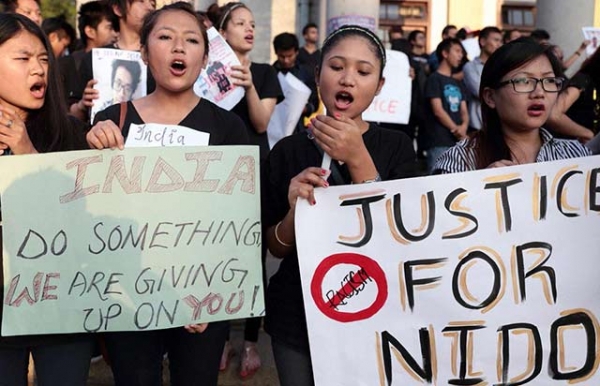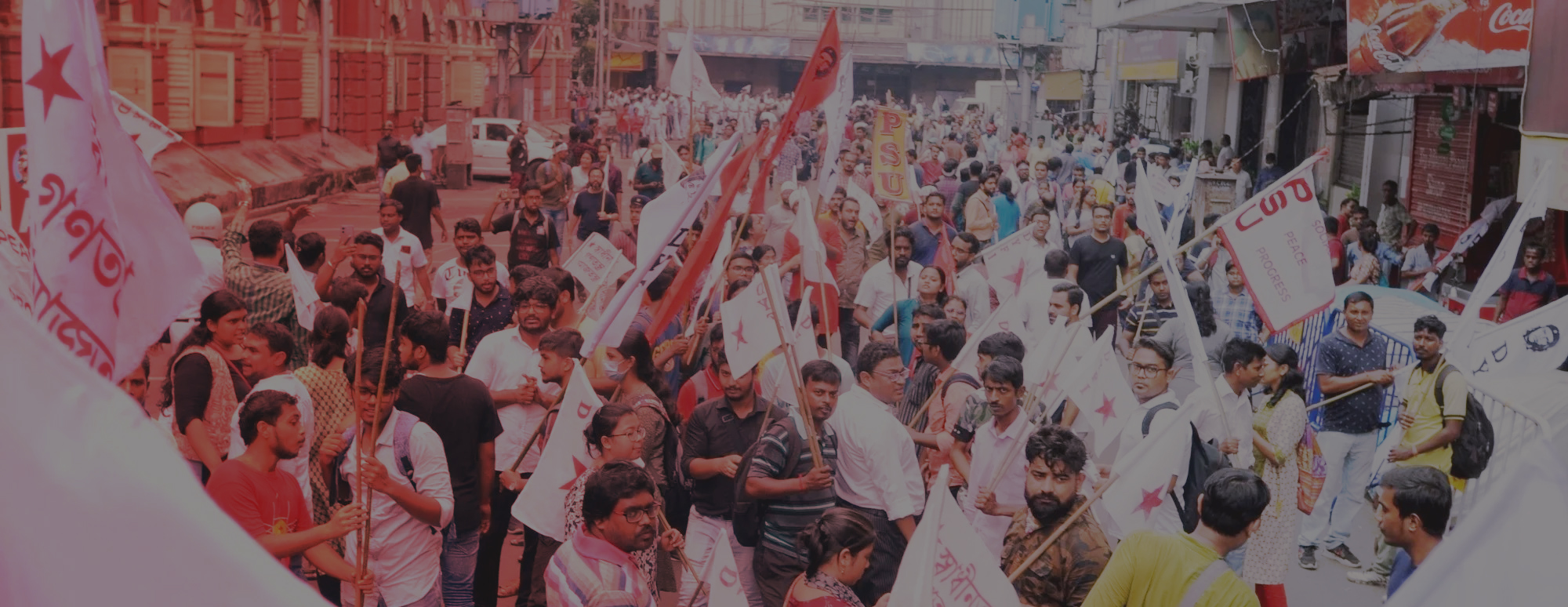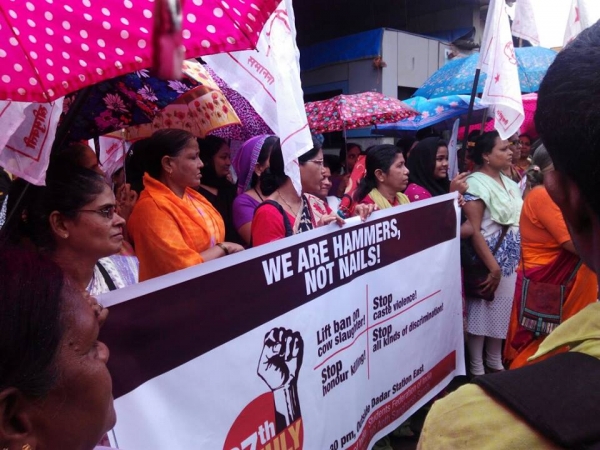DYFI protest in the lathicharge carried out on North East students in Delhi
The Central Executive Committee of the Dmemocratic Youth Federation of India strongly protest in the brutal lathicharge carried out on North East students in Delhi who were protesting in the killing of Nido Taniam and in increasing attacks on North East people.
DYFI President, MB Rajesh, who reached there on hearing the news of the lathi charge also attacked by the police. Many students including girls were brutally lathicharged. Earlier in the day he had addressed a protest march of North East sudents in Jantarmantar. Nido Taniam, a student from the north-east, was beaten on 5 February by shopkeepers who had ridiculed his appearance. He died the next day due to internal injuries, his post-mortem report says. The recently happened series of attacks on North East people highlight discrimination faced by indigenous minorities from India's north east. Insurgency and violence have marked life in the north-east for many years and the states have been unable to share the fruits of India's economic growth.
Much of the isolation of the north-eastern states, collectively called The Seven Sisters of India, can be attributed to violence and a conspicuous presence of Indian troops in the region. The constant struggle between the separatist groups and government troops has adversely affected tourism and business sentiments in the region.
Many youths find it safer to leave their hometowns and head to the big cities of Delhi, Mumbai and Bangalore in search of better jobs and education. But their exodus to bigger cities only marks the start of their struggle.
CEC of DYFI calls upon all its units to protest in this lathi charge and also urges upon the government to provide a safe atmosphere for the North East students in Delhi and take stern action against the culprits of all the attacks on North East students.




 Central Executive Committee
Central Executive Committee









Comments on Post (4)
Mason Gray
Many communities in the disease zones have inadequate sanitation that allow frequent trash piles and open sewers to serve as mosquito breeding and feeding grounds, according to the final outcome statement from the Aedes aegypti summit last month.
Johny Elite
Lorem ipsum dolor sit amet, consectetur adipiscing elit. Nam viverra euismod odio, gravida pellentesque urna varius vitae, gravida pellentesque urna varius vitae.
Rog Kelly
Lorem ipsum dolor sit amet, consectetur adipiscing elit. Nam viverra euismod odio, gravida pellentesque urna varius vitae, gravida pellentesque urna varius vitae.
James Warson
Many communities in the disease zones have inadequate sanitation that allow frequent trash piles and open sewers to serve as mosquito breeding and feeding grounds.